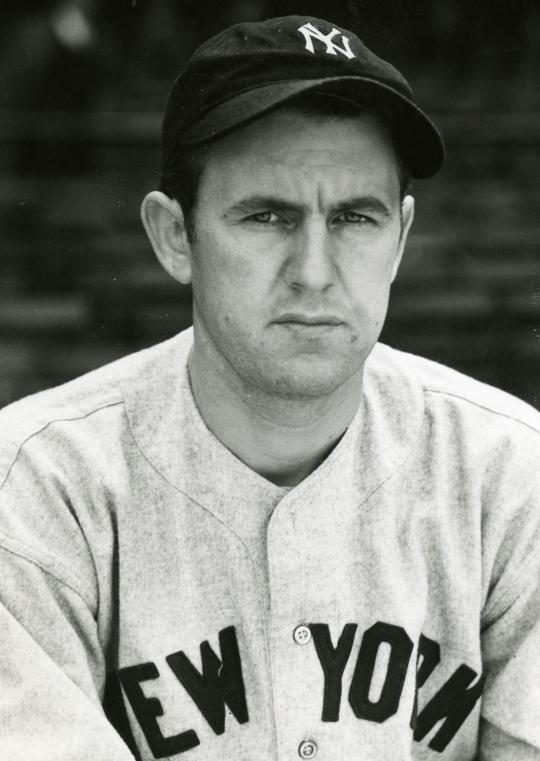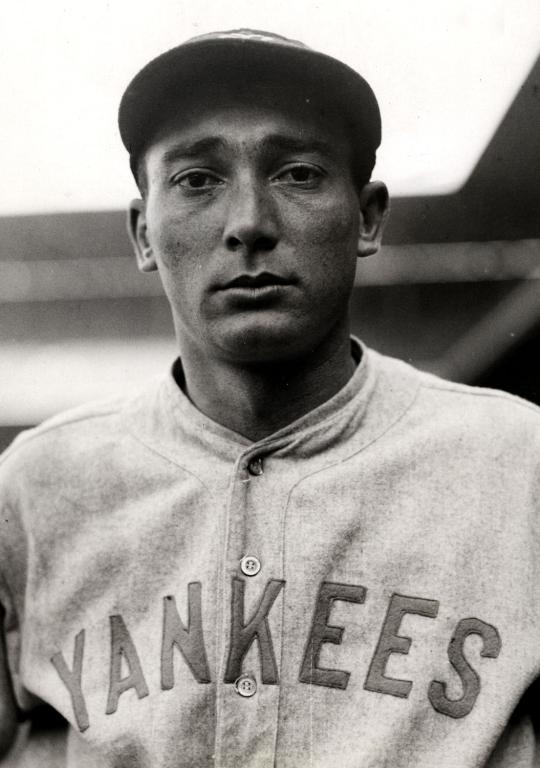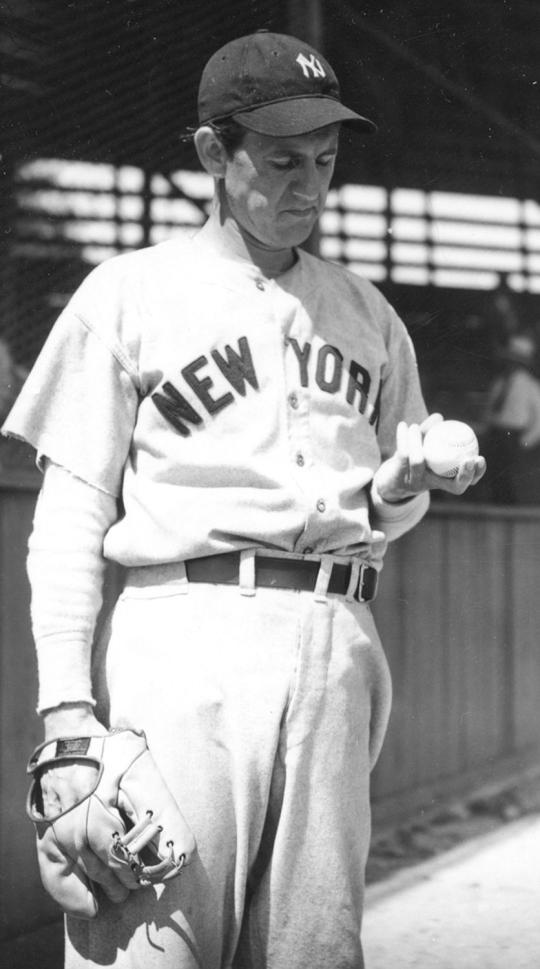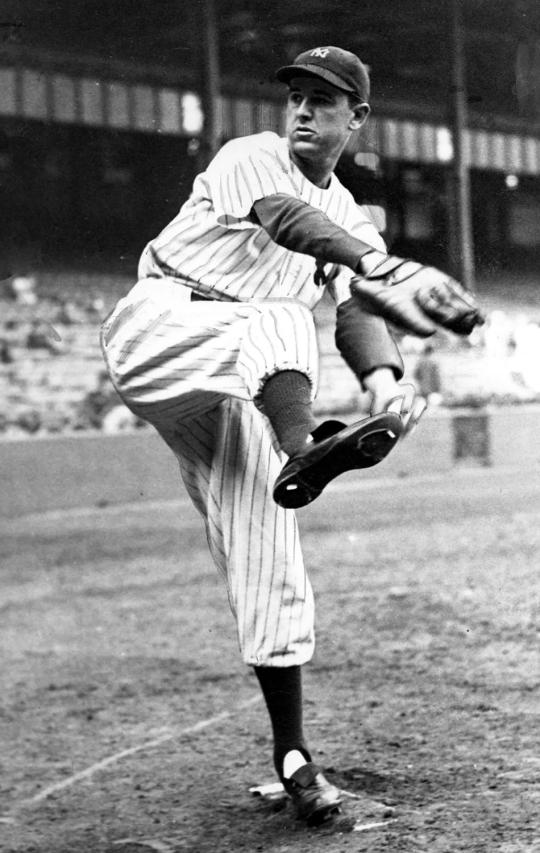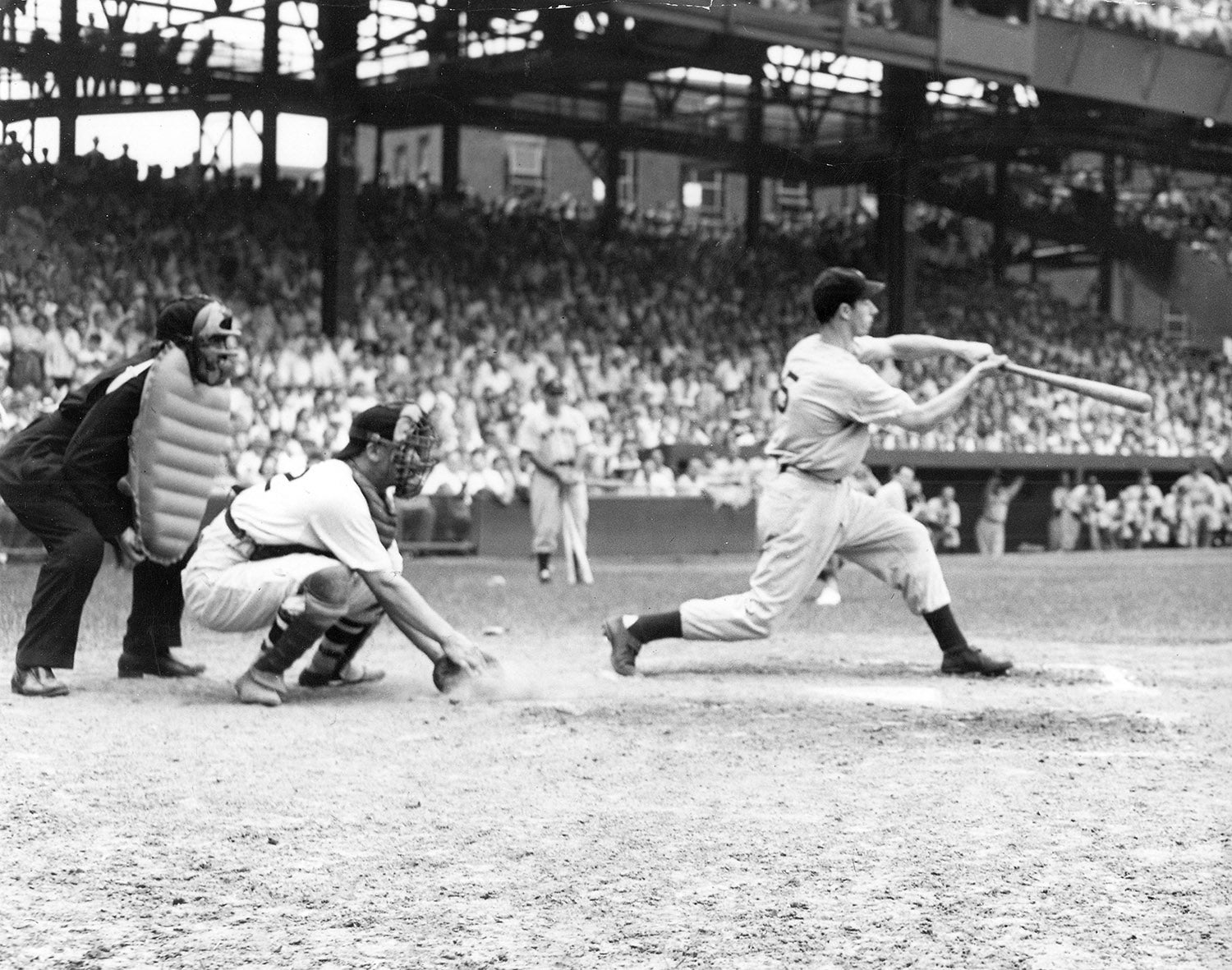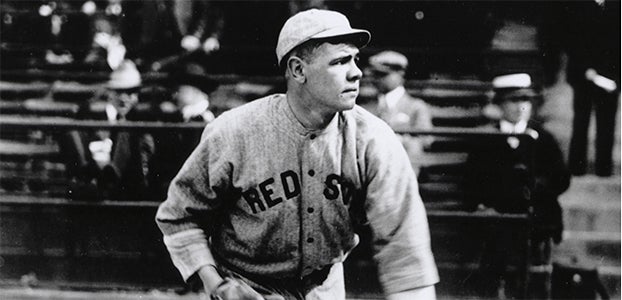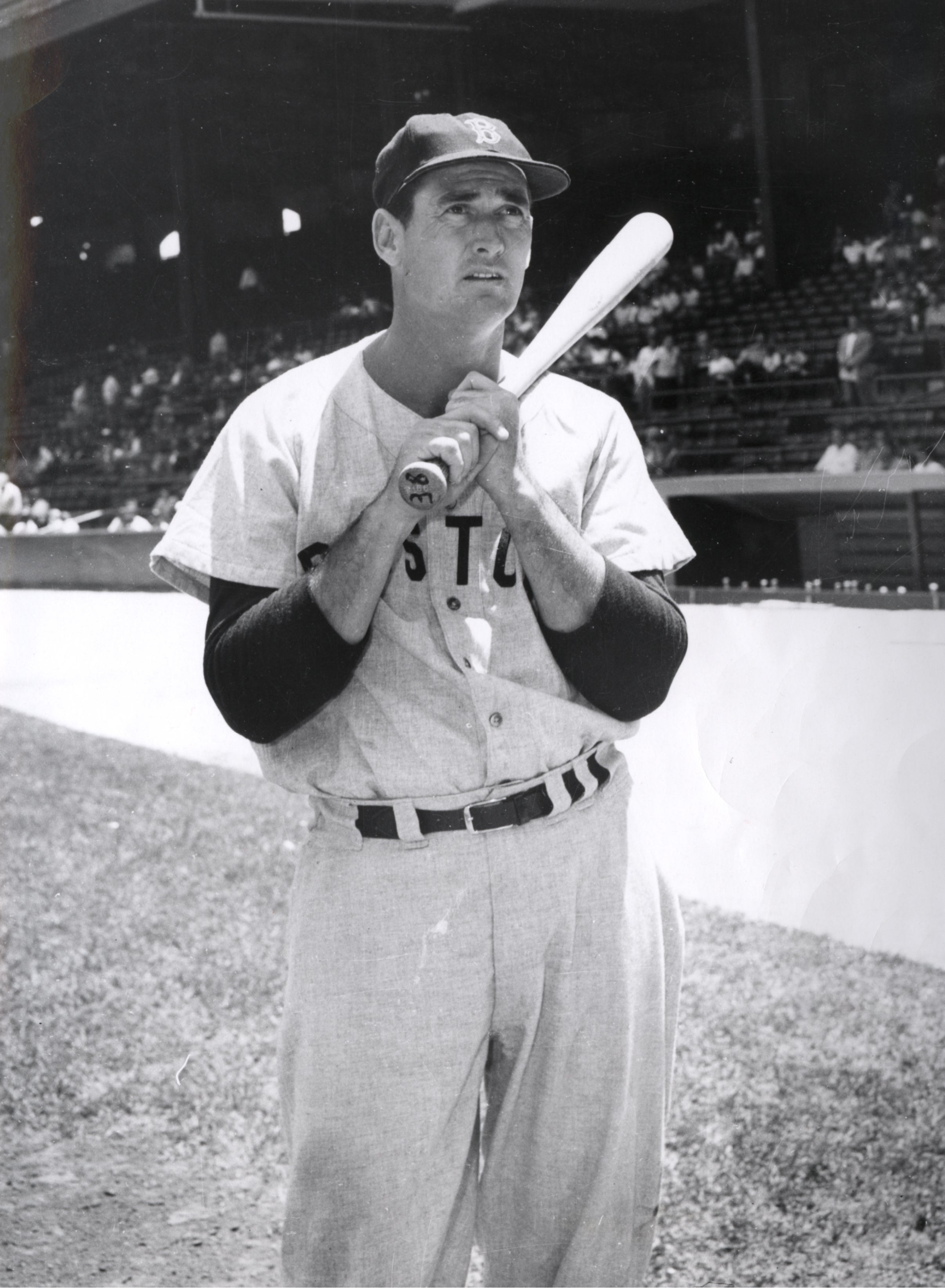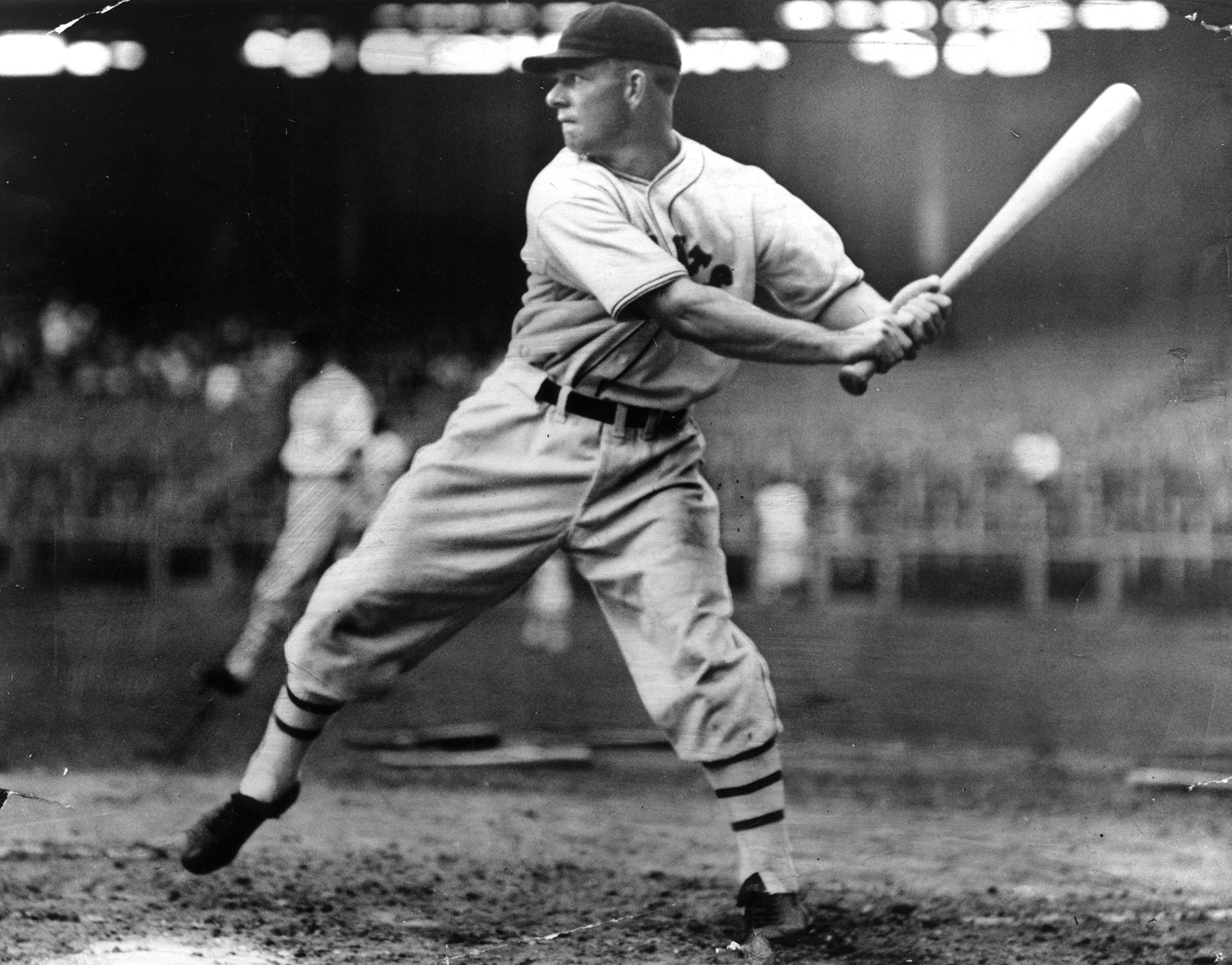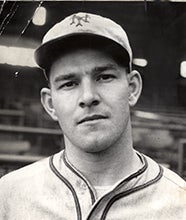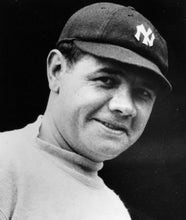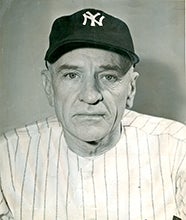- Home
- Our Stories
- #Shortstops: Lefty’s world
#Shortstops: Lefty’s world
The National Baseball Hall of Fame & Museum’s Recorded Media Archive contains approximately 14,000 hours of moving images and sound recordings. Among the sound recordings found in the archives are interviews and oral histories from Hall of Famers.
Perhaps no Hall of Famer, however, could weave a tale like Lefty Gomez.
Gomez, who won five World Series rings with the Yankees, gave a speech to the Novato Historical Guild in Novato, Calif., on June 3, 1978. The file of this speech, which is preserved in the Hall of Fame's collection, is more than 60 minutes long.
Yankees Gear
Represent the all-time greats and know your purchase plays a part in preserving baseball history.
Hall of Fame Membership
There is no simpler, and more essential, way to demonstrate your support than to sign on as a Museum Member.
Lefty began his speech by telling the audience that he played in Novato in 1927, when he was a member of the Point Reyes team. After mentioning his minor league stops with the Salt Lake City Bees and the San Francisco Seals, he told his audience a story about how he almost got in his first Major League baseball game with the Yankees in 1930. Herb Pennock was the starting pitcher for the team that day, and Lefty was sitting in the bullpen, “scared to death and saying a fast prayer for Pennock to go nine innings, because I wanted no part of that game.”
After Pennock got into a jam in the eighth inning, Yankee manager Bob Shawkey signaled for Lefty to come in to pitch. As he walked to the mound, he said he thought about “spiking” himself so he would not have to pitch. When Lefty arrived to the mound, Shawkey asked if he knew that the bases were loaded.
“I said, ‘Yes I do. I’ll tell you one thing, if that ball is hit to me, I’ll throw home, home to first double play and we’re out of the inning.’ And he looked at me and said, ‘Hell no, Lefty! That line drive broke the webbing in Pennock’s drawers. Give him yours and go back to the bullpen.’ And I was so happy, I practically ran back to the bullpen!”
Gomez then mentions some of his famous teammates on the Yankees, such as Joe DiMaggio, Babe Ruth and Tony Lazzeri. On DiMaggio, he said that he made a “star” out of him, because “they didn’t know that he could go back on a ball until he played behind me.”
On days that he would pitch, Ruth would ask him if he was going to pitch today. When Lefty answered yes, Ruth told him, “Well, if you hold them to five runs, we’ll beat ‘em,” which gave him a “wonderful feeling.”
Tony Lazzeri was the teammate that always made Lefty laugh, Gomez said. As he put it, “…if you are going to do something and somebody makes you laugh when you are going to do it, you can’t do as well. And I can tell you when you are pitching you shouldn’t be laughing.”
On a day when his pitching was not stellar, the second baseman shouted out to him: “boy, would I like to be hitting against that stuff you’re throwing out there.” Then, after multiple line drives were hit off Lefty, Lazzeri started to walk off the field. Lefty asked where he was going, and he replied, “I’m going to ask (Yankees manager Joe) McCarthy to get the married men off the infield.”
Lefty told another story involving Lazzeri during the 1936 World Series – like many of his stories, significantly embellished – when the Yankees played against the New York Giants. It was the bottom of the ninth inning of the deciding game and the Giants had the bases loaded with one out. Mel Ott, the Giants’ slugging outfielder, came up to the plate. Ott’s batting stance involved him lifting his right foot before he swung the bat.
Lazzeri went over to Lefty and asked how he was going to pitch to Ott. He told Lazzeri that, if he timed it right, he would “pitch under his foot. It’s the only thing I can do.”
When Lefty threw his pitch, Ott hit “the darndest line drive that you ever saw in your life,” hitting the grass before hitting Lazzeri in the chest and stopping in front of him. He picked the ball up, tagged the runner going to second before throwing Ott out at first for a game ending double play, capping off the World Series championship for the Yankees. Lefty said that Ott’s line drive caused Lazzeri to cough “for six months afterwards” and even in Spring Training the next year, “he still had the outline of the ball on his chest, although the signature of the president of the league had faded a little!”
Lefty was not a great hitter. In his words, he was “the worst hitter that walked up to home plate.” He told his audience of a time that he hit a double at Yankee Stadium. Being on second base was “new territory” for him and he was picked off for having too big of a lead off the bag. The umpire, Cal Hubbard, called him out, and Lefty replied, “I know, but let’s talk for a while,” because he didn’t want to face McCarthy. When he got back to the dugout, McCarthy asked him what happened. Lefty replied, “How the heck do I know? I’ve never been out there before.” McCarthy was not amused and fined him $100 for his answer.
After pitching 13 seasons for the Yankees, leading them to six World Series championships, he was sold to the National League’s Boston Braves prior to the 1943 season. Pitching in his first Spring Training game with the team, he got into trouble with the bases loaded. Braves manager Casey Stengel went out to the mound and asked Lefty if he knew that the bases were loaded. Lefty replied, “What do you think I think they are, extra infielders?’ He said, ‘Over here in the National League, that means there’s three men on.’ I said, ‘We have that rule in the American League.’”
Stengel then went back to the dugout. After Lefty threw two balls in the dirt to the next batter, he returned to the mound and told Lefty: “I forgot to tell you when I was out here before that you are not allowed to throw grounders in the (National League).”
Lefty was released by the Braves before he could appear in a regular season game. Although he does not mention it in his speech, he finished his Major League career that season pitching one game for the Washington Senators.
After talking about his career managing in Venezuela and in the minor leagues, Lefty then partook in a question and answer segment from the audience. The first question he was asked was about his World Series pitching record. Lefty's response:
“My World Series pitching record was six victories and no defeats. Therefore we all have something in common right here. I never lost a World Series game and neither have you people!”
Later on, when asked of his opinion on domed stadiums, Gomez said that they were “wonderful” and “great for the fans.”
After a few more questions, Lefty ended his speech by telling the audience that they were “wonderful” and “if I can help you out with anything, just give me a call if I’m home and would only be glad to do it.”
Gomez, who won pitching Triple Crowns in 1934 and 1937, was elected to the Baseball Hall of Fame in 1972.
Matthew Carter was a curatorial intern in the Hall of Fame’s Frank and Peggy Steele Internship Program for Youth Leadership Development

